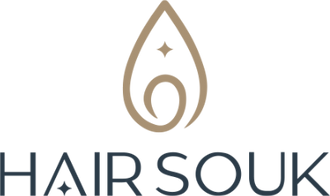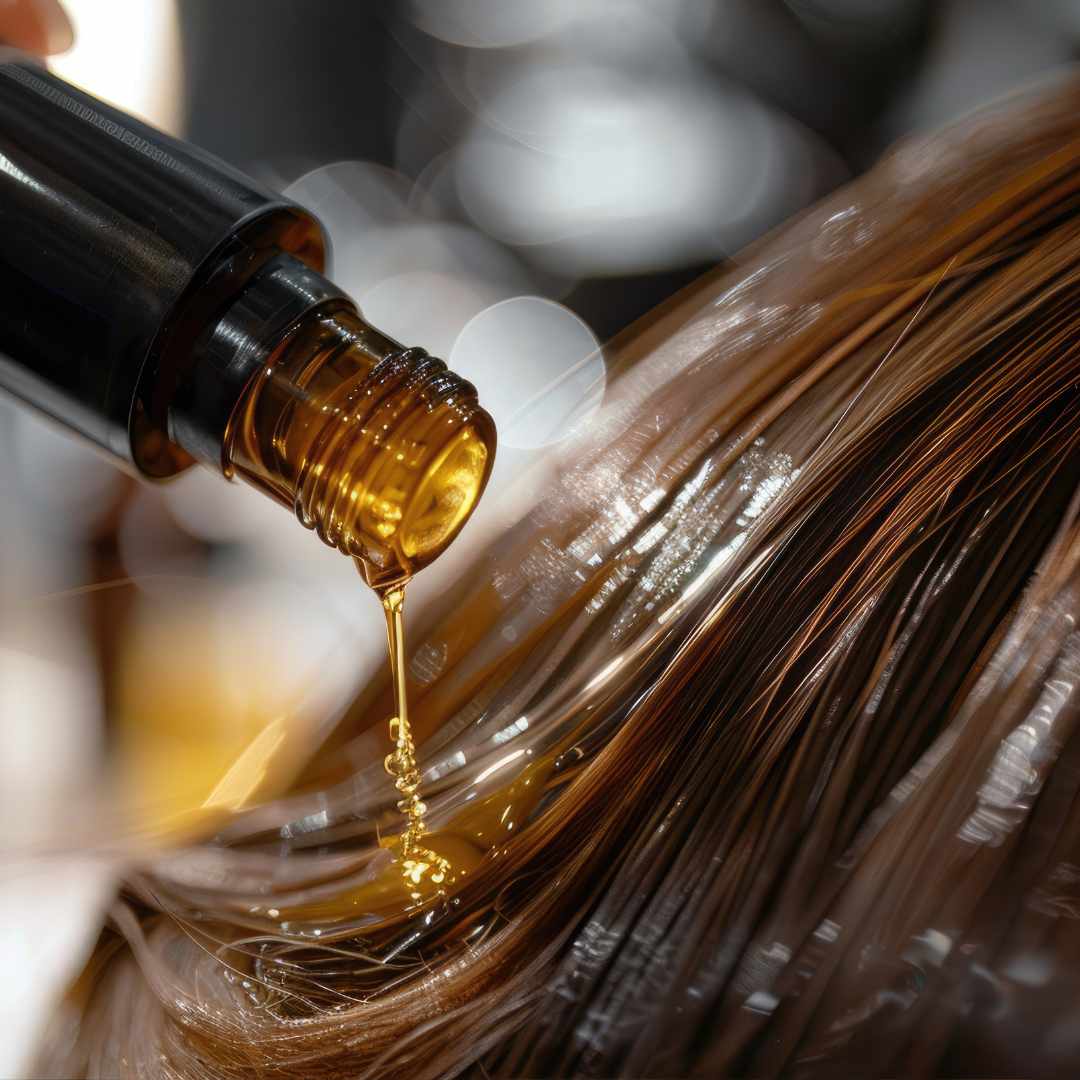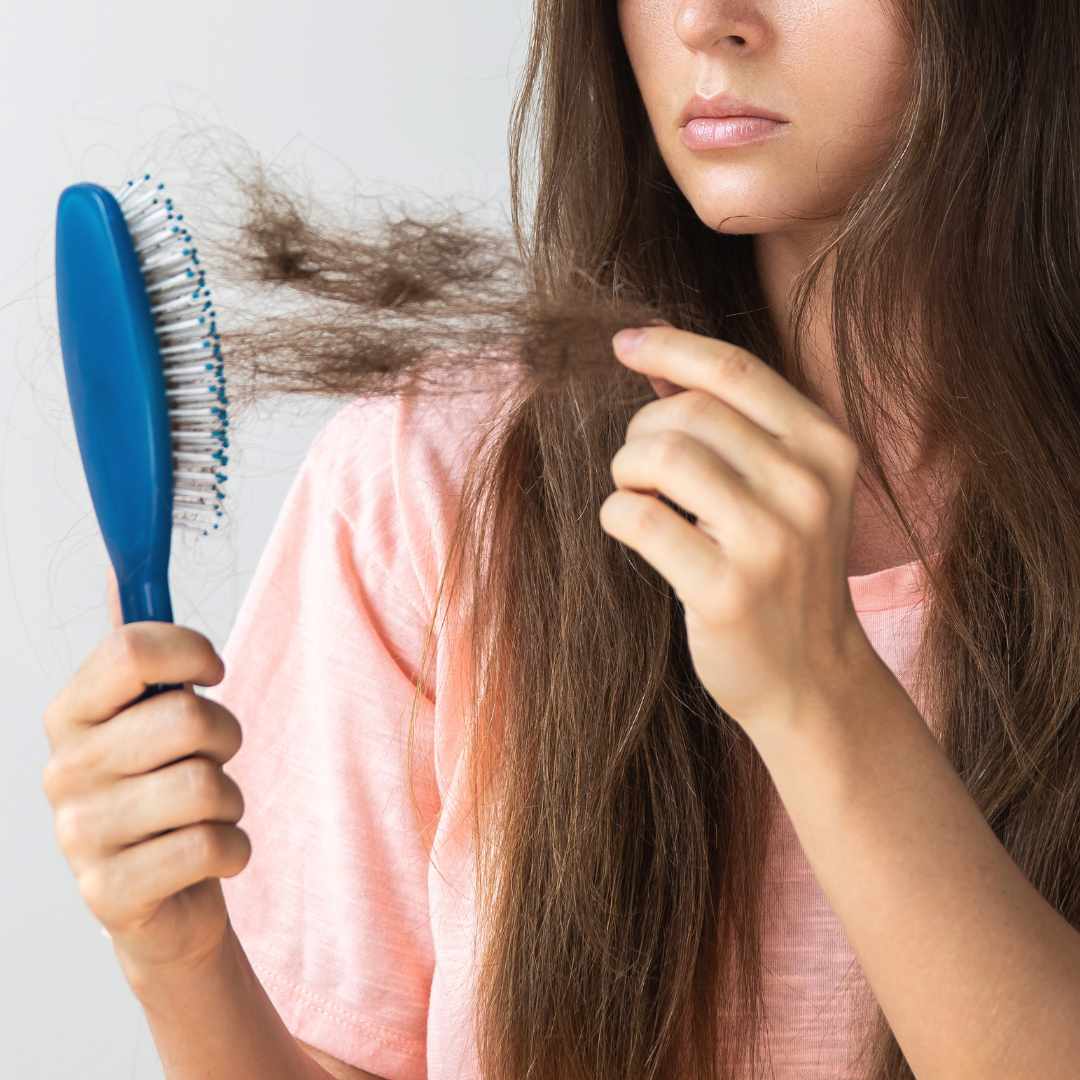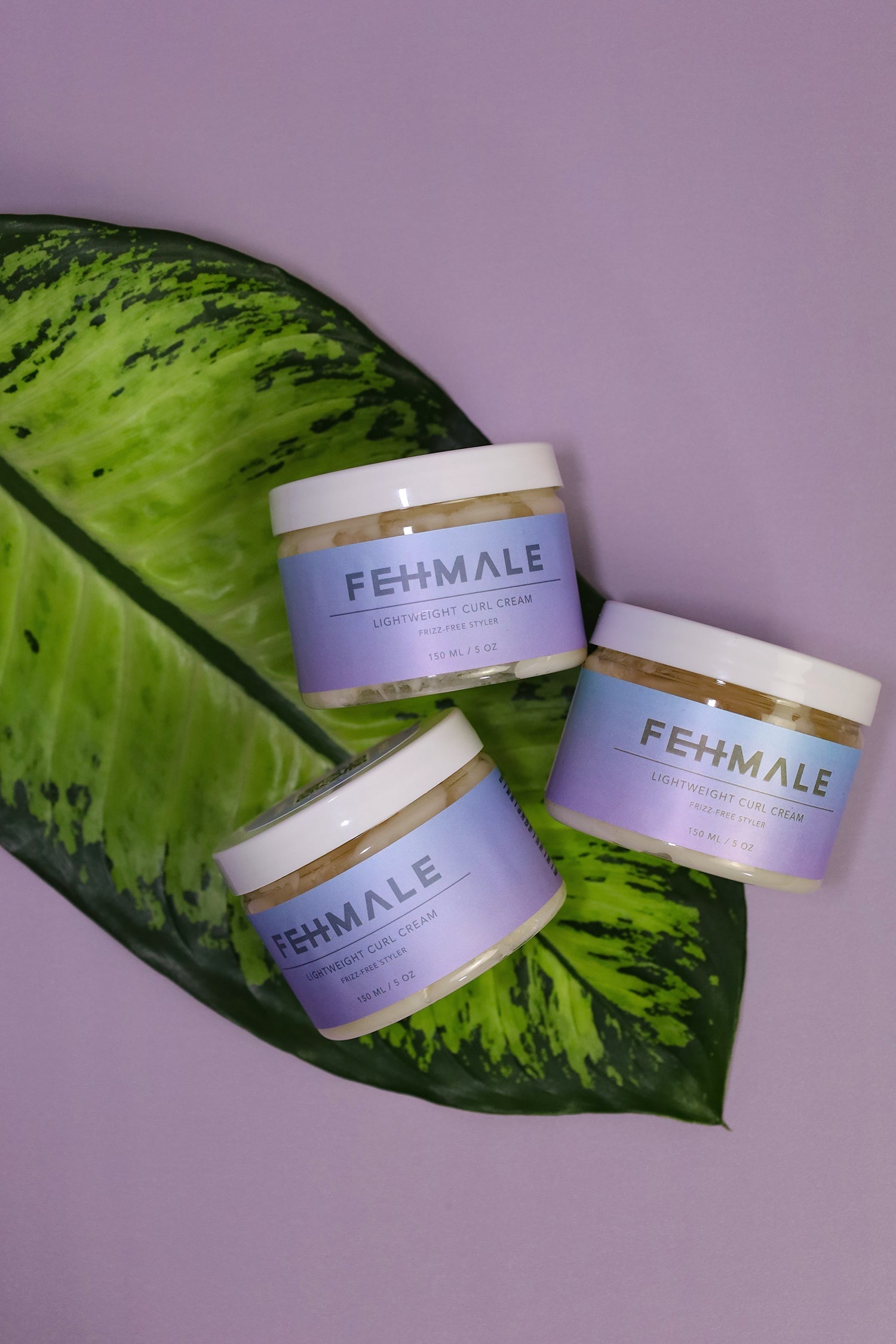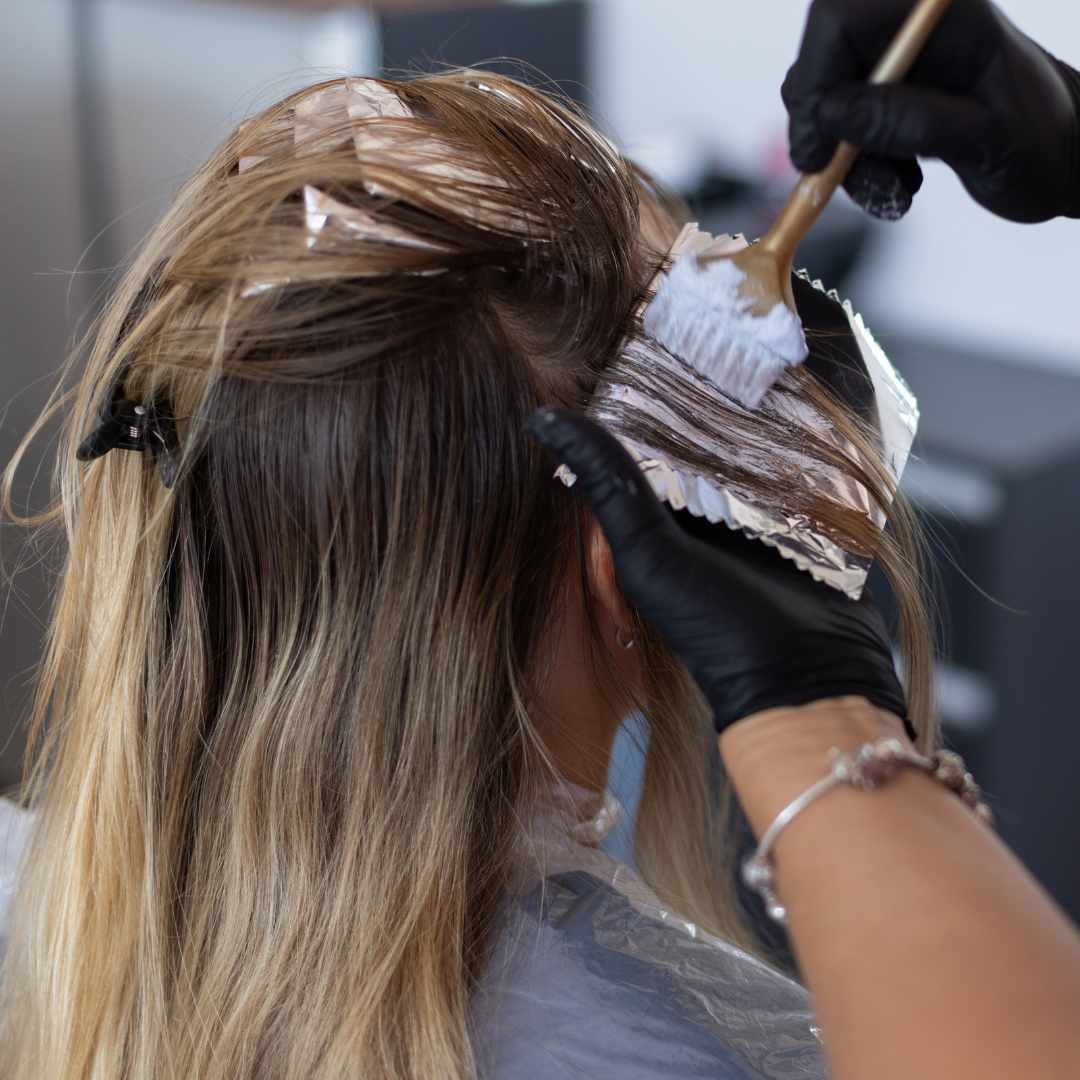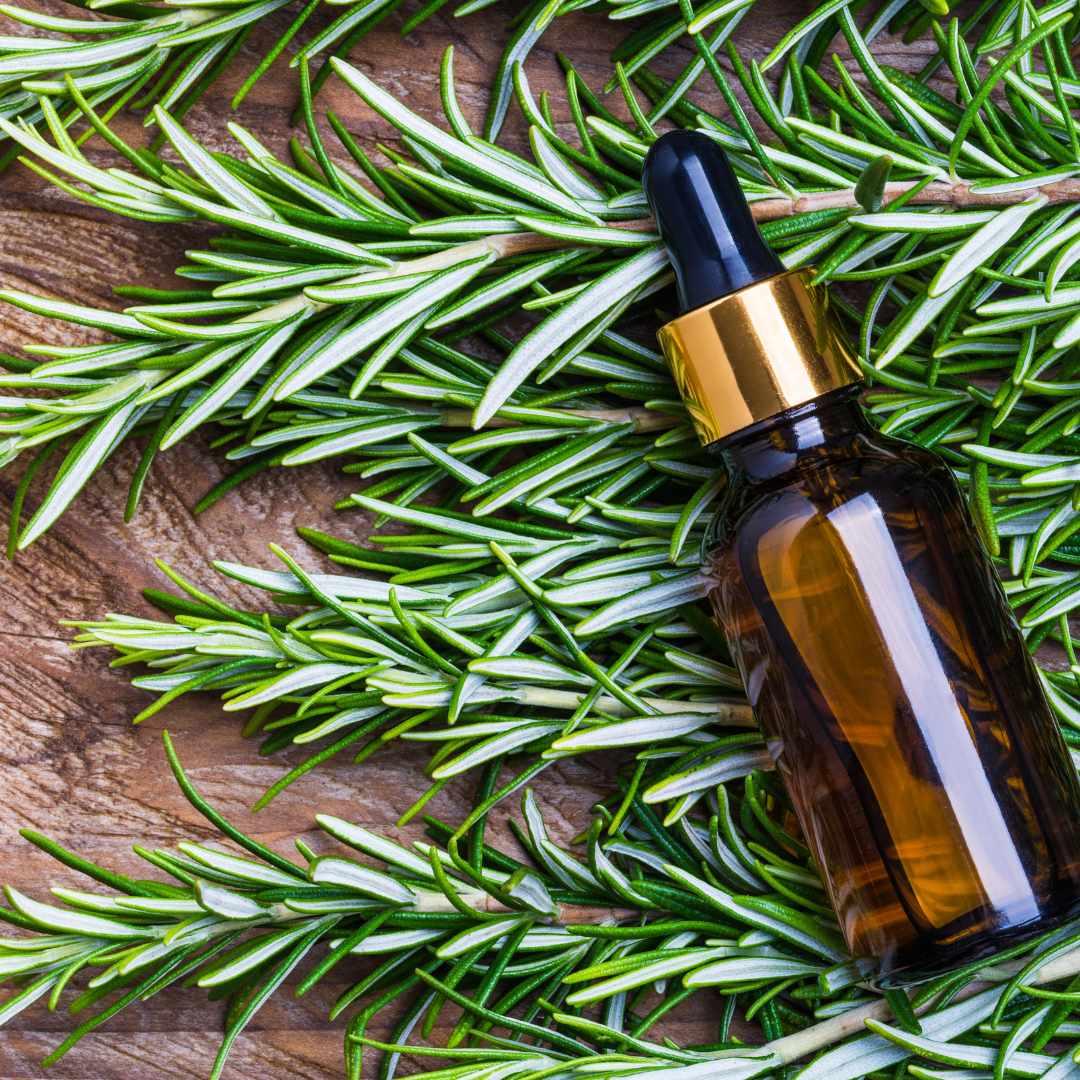
Rosemary oil for hair
Rosemary oil for hair: A natural solution for stronger and healthier hair
Rosemary oil for hair has become a staple in many hair care routines – and for good reason. The essential oil extracted from the rosemary plant is known to promote hair growth, improve scalp health and strengthen the hair shaft itself. But what makes rosemary oil so effective? And how do you use it properly for the best results?
In this guide, we review how rosemary oil works, how to use it correctly, and which products are worth knowing – so you can get healthier hair naturally.

Why use rosemary oil for hair?
Rosemary is not just a culinary herb – it is also a powerful plant with a long history in natural health. When it comes to hair care, rosemary oil is particularly interesting for its ability to stimulate blood circulation in the scalp. This means better nourishment for the hair follicles – and thus the potential for increased hair growth and stronger hair.
Documented benefits of rosemary oil:
-
Promotes blood flow to the scalp
-
Strengthens hair follicles and reduces hair loss
-
Soothes dry and itchy scalp
-
Fights dandruff and inflammation
-
Gives hair shine and elasticity
If you want an intensive and targeted oil treatment, you can start with As I Am Rosemary Oil 60ml . It is a concentrated oil that is well suited for scalp massage and spa treatments several times a week.
How to use rosemary oil correctly
The effects of rosemary oil depend largely on how and how often you use it. Fortunately, it is both versatile and easy to incorporate into your routine.
1. Direct scalp massage
Massage a few drops of rosemary oil directly into your scalp with your fingertips for 3–5 minutes. Leave the oil on for 30–60 minutes (or overnight) and then wash your hair as usual.
2. Mix with a carrier oil
If you have sensitive skin, you can dilute rosemary oil with a mild carrier oil – such as jojoba, almond or coconut oil. This makes the treatment gentle and suitable for more frequent use.
3. In your shampoo or conditioner
You can also add a few drops of rosemary oil to your shampoo or conditioner. It's an easy way to achieve the effect without changing your hair washing routine.

Rosemary oil for hair loss and thinning hair
Rosemary oil is particularly popular among those experiencing hair loss, balding or thinning hair – whether due to hereditary factors, stress, hormonal imbalances or hair care habits. Several small studies and many user experiences suggest that rosemary oil can help slow hair loss and stimulate new hair growth. It is believed, among other things, to inhibit the effects of DHT – a hormone associated with hereditary hair loss (androgenic alopecia) – while increasing blood flow to the hair follicles, so they receive better nutrition and oxygen.
When blood circulation to the scalp improves, it becomes easier for hair follicles to maintain a healthy growth cycle, which can both reduce shedding and provide stronger hair strands over time. This makes rosemary oil a natural alternative to chemical products – and especially interesting for those who want a gentle and long-lasting solution.
Signs that rosemary oil may be for you:
-
The hairline is receding.
-
You shed more than usual , especially during washing or brushing
-
Your hair feels thin and lifeless , and you lack volume.
-
The scalp appears dry, irritated or unbalanced
If you experience one or more of these signs, it may be a good idea to implement rosemary oil into your routine. You don't have to use it in its purest form – many people experience good results with products that combine rosemary with other strengthening ingredients.
An obvious choice is Camille Rose Rosemary Oil Strengthening Hair & Scalp Drops 56ml . Developed for daily use, this formula contains an effective combination of rosemary, peppermint and biotin – all known for their stimulating and strengthening properties. The oil is lightweight, non-greasy and can be used as both a leave-in treatment and scalp oil, making it easy to incorporate into any hair routine.
With regular use, you can expect a more balanced scalp, less shedding and gradual improvement in hair thickness and strength – without the use of harsh chemicals.
Is rosemary oil for hair for everyone?
In general, rosemary oil is a safe and natural solution for most people – but as with all essential oils, it should be used with caution.
Good tips for use:
-
Do a patch test the first time you use the product.
-
Avoid contact with eyes and mucous membranes.
-
Do not use undiluted oil on children or during pregnancy without professional guidance.
-
Rinse thoroughly if irritation or discomfort occurs.
Rosemary oil is powerful, but when used correctly it is both gentle and effective. The key is to start gently and find the method that works best for your hair type and scalp.

Combine with other natural ingredients
For maximum effect, rosemary oil can be combined with other natural ingredients, each of which contributes its own unique properties. When used together, these oils can create a balanced treatment that both stimulates hair growth, nourishes the scalp, and protects the hair from damage.
Examples of effective combinations:
-
Peppermint oil : Known for its cooling and stimulating effects. It increases blood circulation and gives a fresh feeling to the scalp, while also being invigorating and refreshing. Especially good for those who experience a tired or oily scalp.
-
Tea tree oil : Has strong antibacterial and antifungal properties. It is effective against dandruff, itching and irritation and creates a healthier environment on the scalp, which supports hair growth and reduces the risk of inflammation.
-
Lavender oil : Has a calming and balancing effect – both physically and mentally. Lavender can help counteract stress-related hair loss and at the same time has a nourishing and softening effect on both hair and scalp.
These ingredients work both individually and in combination with rosemary oil, and they are found in several well-designed hair care products. One of the most popular combinations is found in the light and fragrant Mielle Rosemary Mint Scalp & Hair Strengthening Oil Light 59ml . This oil combines rosemary and peppermint with a selection of other plant oils and vitamins, making it ideal for daily use - even for those with sensitive scalps.
By choosing products with more active natural ingredients, you get more targeted and effective hair care that supports growth, health and balance in the scalp.
When can you expect results?
Patience is key when using natural remedies like rosemary oil for hair. Most users report visible improvements within 6–12 weeks of regular use, especially when combined with a healthy diet, gentle hair care, and minimal use of heat styling tools.
For best results, rosemary oil should be used at least 2–3 times a week – preferably combined with scalp massage and mild shampoo without sulfates.

Rosemary oil for hair: A natural investment in your hair health
Rosemary oil for hair is not just a trend – it is a well-documented and natural alternative for those who want stronger hair, a healthier scalp and less hair loss. Whether you prefer a concentrated oil, light drops or a fragrant mint blend, HairSouk has the products you need to get started.
Do yourself a favor – and your hair a favor – by making rosemary oil a regular part of your routine. It doesn’t take much: a few drops, a little patience, and regular use. The result? A more balanced hair environment, less shedding, and hair that feels stronger and looks healthier. Natural hair care starts with good habits – and rosemary oil is a great place to start.
